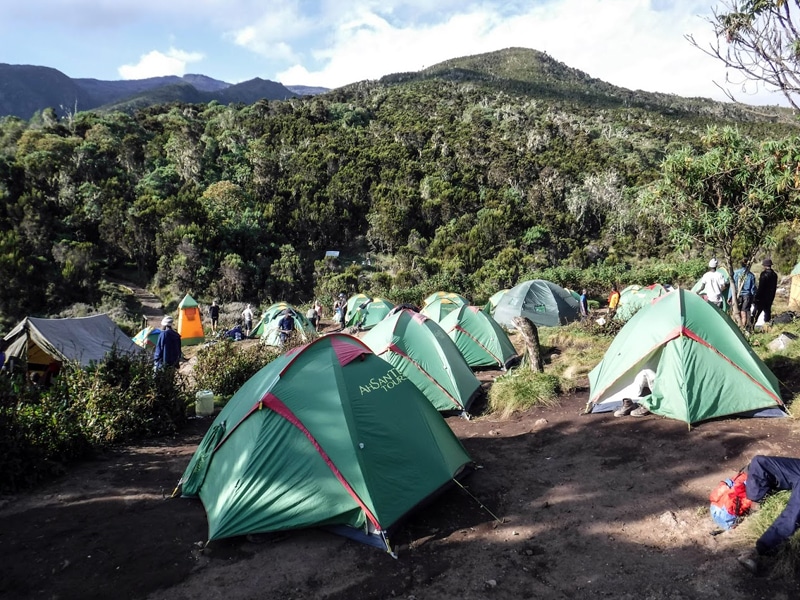Choose a Comfortable Sleeping Pad: Invest in a good quality sleeping pad or air mattress to provide insulation from the ground and cushioning for a more comfortable sleep.
Use a Quality Sleeping Bag: Make sure you have a sleeping bag appropriate for the temperature of the camping location. It’s essential to stay warm during the night to promote better sleep.
Pick a Flat and Level Surface: Before setting up your tent, find a flat and even ground to pitch it. Sleeping on a slope or uneven surface can be uncomfortable and disrupt your sleep. The guides will do this for you every day.
Keep Your Tent Clean: Make sure your tent is clean and free from debris, rocks, or sticks that could cause discomfort while sleeping.
Block Out Light and Noise: Use an eye mask and earplugs if needed to block out any unwanted light or noise that may disturb your sleep.
Dress Comfortably: Wear comfortable and weather-appropriate sleepwear. Layer up if it gets cold during the night.
Stay Dry: Ensure your tent is properly waterproofed and use a rainfly if necessary to stay dry in case of rain. Staying dry is crucial for a good night’s sleep. All tents provided by Ultra adventures are waterproof.
Maintain Ventilation: If the weather allows, keep the tent’s windows or vents partially open to promote air circulation and reduce condensation.
Wind Down Before Sleep: Take some time to wind down before bedtime. Avoid stimulating activities and electronics, and instead, read a book or practice some relaxing exercises.
Follow a Sleep Routine: Try to maintain a consistent sleep schedule even while camping. Going to bed and waking up at the same time each day can help regulate your body’s internal clock and improve sleep quality.
Remember that sleeping in a tent might feel different from sleeping in your bed at home, but with a few adjustments and a positive mindset, you can still get a restful night’s sleep and fully enjoy your camping experience.

